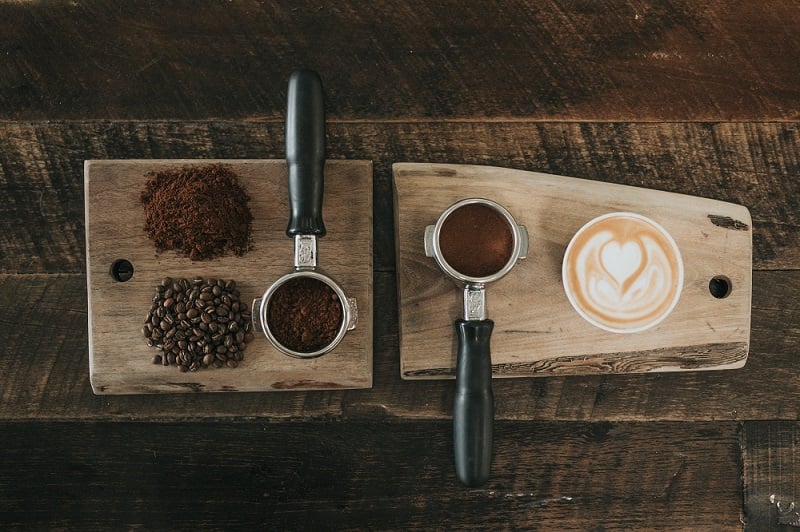How Much Caffeine Is Too Much? Here are the Rules

You’ve probably heard that caffeine is the most widely used drug in the world, so if you feel like you might be addicted, you’re far from alone. If you drink just one or two cups of coffee, a few cups of tea, or even a small soda a day, you probably have few worries when it comes to caffeine. (Sugar, though, especially when it comes to soda, may be another issue …) But as the quantity increases, you may find yourself asking, how much caffeine is too much? Am I getting too much of a good thing?
In today’s article about caffeine, we will cover:
- Is Caffeine a Drug?
- Benefits of Caffeine
- Side Effects of Too Much Caffeine
- Other Sources of Caffeine?
- How Much Caffeine is Too Much?
- Do You Really Need Caffeine?
Is Caffeine Really a Drug?
In short, the answer is yes, caffeine is a drug. To be more specific, caffeine is considered a stimulant drug 1 as it stimulates the central nervous system. Caffeine is found in many common drinks (i.e., coffee, tea, soda, and energy drinks) as well as chocolate bars. It’s also found in some headache and weight-loss pills and performance-enhancing supplements (e.g., pre-workouts) because it can affect how you feel, act, and perform.
For example, caffeine speeds up messages between the brain and body, increases energy production within the central nervous system and muscles, and increases metabolic rate.
As many of us who have been forced to skip our morning coffee know all too well, it can also be addicting, leading to headaches, brain fog, and other not-so-nice withdrawal symptoms if we suddenly cut it out of the diet.
Benefits of Caffeine
The 64% of Americans who drink coffee, reach for it (or tea or soda) because it helps wake up the brain so you feel more alert. The boost of energy it provides can also help you get past the post-lunch slump, so you can kick the last couple of hours of the workday up a notch to finish the day strong. Effects are typically felt within about 30 minutes and can last anywhere from 5 to 10 hours.
In moderation, caffeine has been shown to help boost not only energy, but mood and mental and physical performance. It’s also been shown to improve performance on both vigilance and simple tasks that require a sustained response. 2 It can even help improve strength and endurance to enhance sports performance.
Most of us get our caffeine via coffee—in fact, 75% of consumed caffeine in the U.S. comes from the humble coffee bean. And drinking coffee has been associated with a whole host of benefits, including a decreased risk for diseases like:
- Cardiovascular disease
- Stroke
- Parkinson’s disease
- Prostate cancer
- Diabetes
- Depression
- Obesity
The benefits, however, appear to be due to the many nutrients found in coffee beans, including antioxidants, rather than from the caffeine alone.
Side Effects of Too Much Caffeine?
On the flip side, caffeine—especially in high amounts or for more sensitive people—also comes with troubling side effects. These include anxiety, irritability, and restlessness. It can also lead to sleep troubles, including making it harder to fall asleep, stay asleep, or reach an REM state, especially if it’s consumed too close to bedtime.
Too much caffeine can also lead to an increased heart rate, body temperature, and blood pressure, and increase the risk for heart problems. 3
And, you may also find yourself becoming dehydrated as caffeine is a diuretic (i.e., it makes you pee more). Plus, when drinking more caffeine-containing beverages, you’re less likely to drink as much water as you need. Finally, some people find caffeine leads to headaches, lack of concentration, or stomach pains. Coffee, in particular, can lead to heartburn, indigestion, and nausea, as it’s too acidic for some people.
Plus, when you can’t get your usual morning latte, you’re likely to not only feel more fatigued than usual, but you’ll also likely have a headache and some brain fog. Not fun!
How caffeine affects you can also depend on your size, weight, and health status; if you regularly consume it; how sensitive you are to it; and if you’re taking it with any other substances. 4
LIMITED TIME OFFER: Get Ageless Turmeric, Our Highly-Bioavailable Turmeric & Ginger Supplement, As Low As $14
Other Sources of Caffeine?
While coffee is the primary source of caffeine, it isn’t the only one. For example, tea provides about half the amount of caffeine as coffee does on a cup-per-cup comparison. It’s also found in:
- Colas (e.g., Coke, Pepsi)
- Energy Drinks (e.g., Red Bull, Monster Energy, Rockstar, and many others)
- Chocolate
- Some gums
- Some energizing snack foods
- Some over-the-counter medications
- Many pre-workout supplements
Unfortunately, you can’t tell how much caffeine is in any of these products just by looking. A small can of some energy drinks provides way more caffeine than a large coffee. In addition, coffee can have more or less caffeine per serving, depending on how it’s brewed.
To better understand the variation, here are just a few examples:
- Twenty ounces of a Starbucks coffee provides ~415 mg of caffeine compared to ~133 in a 16-ounce McDonald’s coffee compared to around 96 mg in a cup of home-brewed coffee and 145 mg in a 50-ml espresso. Even decaf coffee still provides around 2 to 15 mg per 8-ounce cup.
- A 23.5-ounce Jolt energy drink provides 28 mg, while an 8.4-ounce Red Bull comes in at 80 mg.
- Eight ounces of black tea (brewed) provides up to 80 mg, while 8 ounces of green tea only provides around 60 mg, and a bottled Snapple lemon tea provides 62 mg in 16 ounces.
- A 12-ounce Pepsi MAX provides 69 mg, while a Mountain Dew has 54 mg per can, and a regular Coke comes in at 35 mg. Diet Coke is in-between at 46 mg per can. Diet Pepsi has less, with 35 mg.
- A 4-ounce coffee yogurt from Dannon provides 30 mg, while a Hershey’s Special Dark Chocolate Bar (1.5 ounces) provides 20 mg.
In other words, it’s important to look at the label of any prepared caffeine food or drink you’re considering to determine how much you’re getting.
How Much Caffeine is Too Much?
The average person in America consumes around 300 mg of caffeine per day. Fortunately, that appears to be within healthy ranges. Some experts recommend consuming no more than 4 or 5 cups of coffee or 2 energy drinks per day (around 400 mg); others recommend sticking to no more than 300 mg (closer to 3 cups of coffee per day). Almost all experts agree that more than 600 mg per day is too much and can lead to unwanted side effects.
Regardless of how much is recommended, individual tolerance is just as important. Folks who are sensitive to caffeine can find two, one, or even a half-cup of coffee causes discomfort like disrupted sleep or jitters. This is because how sensitive people are to caffeine varies widely, as it depends on how quickly the caffeine is metabolized or broken down by the body. 5
Children, especially, can be highly sensitive and should avoid much, if any, caffeine. Pregnant and breastfeeding women, as well as those who are trying to become pregnant, should also limit consumption to under 200 mg.
Other folks who may want to limit their consumption include those with heart conditions, high blood pressure, or suffering from chronic acid reflux. It’s also worth being cautious if mixing caffeine with alcohol or other drugs, such as ephedrine, theophylline, and herbs like echinacea.
For anyone, a dose of 10 grams (the equivalent of over 100 cups of coffee) could lead to hospitalization or even death. It’s unlikely you’ll drink that much caffeine, so it’s more of a concern with pills and powders, especially for children.
If you find that you are experiencing:
- Tremors
- Nausea and vomiting
- Diarrhea
- Abdominal pain
- Intense irritability, nervousness, or anxiety (e.g., a panic attack)
- Rapid and irregular heart rate
- Confusion and panic
- Seizures
it’s time to call a healthcare practitioner or, depending on the severity, head to the emergency room.
It’s unlikely to consume too much from beverages alone; however, some people have unknowingly consumed too much with beverages combined with pills or powdered forms. So, make sure you’re aware of how much caffeine is found in any of your products, especially if you consume more than one type per day.
Even consuming too much regularly, for example, more than 4 cups every day (or less for some sensitive individuals), can lead to unwanted side effects, such as:
- Feeling jumpy, anxious, or alarmed
- Difficulty getting to sleep or insomnia
- Increased (more frequent or urgent) urination
- Ulcers
- Bone loss
- Muscle breakdown
- Irritability
- Headaches
- Dizziness
- Ringing in the ears
- Muscle tremors
- Fatigue
- Weakness
- Rapid heart rate
- Lack of appetite
- Digestive issues including nausea, vomiting, and diarrhea
- Increased thirst
- Irregular heart rate
- Low or high blood pressure
- Faintness
- Confusion
- Addiction
If you get your caffeine from colas, energy drinks, or pre-workouts, it’s also important to consider the other ingredients these typically contain. Many are loaded with sugar or other chemical sweeteners. Others are combined with ingredients that may make caffeine even more potent, which can increase side effects.
Do You Really Need Caffeine?
I would never dare stand in the way of anyone and their cup of coffee (I’m currently sipping on an iced latte myself). However, caffeine is not a need and can become an unhealthy habit. If you enjoy your caffeine, then, by all means, you do you. But if you do find it’s leading to anxiety, discomfort, health issues, or you don’t like being dependent on it, then the good news is that most of the health benefits of coffee and tea also come from decaf versions.
If you have been experiencing some unwanted side effects, it’s a good idea to slowly wean yourself off of caffeine-containing products to avoid or at least reduce any withdrawal symptoms, including:
- Headaches
- Fatigue
- Irritability
- Anxiety
- Tremors
- Decreased concentration
For example, switch from a high-caffeine energy drink to one that has a lower amount. Or switch from your usual coffee drink to tea, or just go with one that’s half-caf rather than full. You can also keep your morning coffee but switch to decaf or tea later in the day.
Track your caffeine consumption so you can easily see where you are now, where you can cut back, and when you feel your best. Maybe one cup of coffee makes you feel energized and alive, and three cups leave you feeling anxious and irritable. Perhaps you feel best with just one cup of coffee in the morning and a cup of tea in the afternoon. Maybe any energy drink leaves you feeling too amped up and annoyed, but coffee doesn’t have the same effect. Once you know how you react, you can adjust accordingly.
How Much Caffeine: A Wrap-Up
If you’re like most people, caffeine is just a part of a standard day. Typically, this doesn’t pose any problems, and if you’re drinking moderate amounts of coffee or tea, it likely is providing benefits. Not everyone is the same, though, and some folks are highly sensitive. Others may have simply gradually increased their consumption over time and need to consider cutting back.
Fortunately, caffeine withdrawal isn’t considered dangerous, so there’s no need to be afraid if you run out. That being said, it can be highly uncomfortable, so it’s best to gradually decrease rather than just cutting yourself off.






 7 Signs Your Body is Seriously Low on Collagen (not just wrinkles)
7 Signs Your Body is Seriously Low on Collagen (not just wrinkles) Health Expert: "Turmeric Doesn't Work (unless...)"
Health Expert: "Turmeric Doesn't Work (unless...)" 3 Warning Signs Your Probiotic Supplement is a Total Waste
3 Warning Signs Your Probiotic Supplement is a Total Waste

